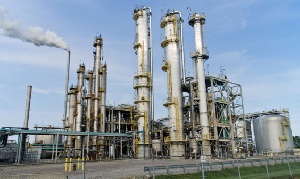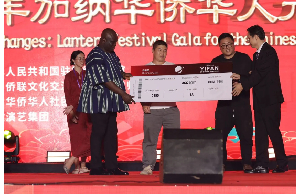Consumers of petroleum products will have to stomach the burden of paying the Tema Oil Refinery (TOR) Debt Recovery Levy for at least another 10 years as debt owed by the country’s sole oil refinery reaches its peak, Kwame Awuah-Darko, Managing Director of TOR has said.
The notice of the TOR boss, which is expected to elicit a strong public criticism, comes at a time the TOR Debt Recovery Levy, introduced in 2003 and levied on petroleum products, has since accumulated funds that could reportedly settle the indebtedness of the oil refinery.
Proceeds from the TOR Debt Recovery Levy has reportedly exceeded GH¢1.9 billion over a six year period ending 2015, despite the TOR debt, resulting from underecoveries, amounting to Gh¢900 million as at 2009, according to figures from African Center for Energy Policy (ACEP). However, Mr. Awuah-Darko explained to the B&FT on the sidelines of a Ministry of Finance’s press conference on the energy sector debts that the TOR Debt is far from being cleared off its books with the arrears now close to about Gh¢1 billion.
According to the Mr. Awuah-Darko, government is keen on raising a GH¢917 million long-term loan facility which will last a 10-year period to settle TOR’s indebtedness. The interest on the debt incurred will be serviced with proceeds from the TOR Debt Recovery Levy component of the Energy Sector Levies.
The amortization of the TOR Debt from the namesake levy will mean that consumers would have spent more than twenty years in paying for the debt by the time the 10-year bond matures.
The indebtedness of TOR has received condemnation from some civil society organization led by ACEP, which believes that Ghanaians have overpaid the TOR debt with petroleum consumers still paying at least 41 pesewas per litre on petroleum products to service the debts and could likely pay more over the next 10years. But, Mr. Awuah-Darko argued that the despite the imposition of the TOR Debt Levy in 2003, new debts were incurred over the years meaning that the initial debt widened leaving a much bigger debt as it currently stands.
Beyond central government’s efforts at resolving the debt of the country’s sole refinery, its MD said the Refinery is also putting measures in place to pay portions of the debt using returns from its investment.
“What we have done today is to draw a line under the legacy debt and making sure that our management going forward doesn’t incur any debt. That is why you see that we are very critical on our profitability. “A lot of the debt incurred was blamed on subsidies. The government today has said it won’t support subsidies in petroleum.
So petroleum is sold at a competitive price which is what we have being doing since February 4th 2016 and we haven’t made any losses,” he said. “The point is we have to sustain what we have started,” he said of the government petroleum price deregulation policy.
“If government is able to sustain price deregulation policy then we won’t come to the situation where we will be owing. Ghanaians must realize there is no free lunch, subsidies that were provided 20 years ago, today we are being forced to pay it, which means if we had not enjoyed that subsidy regime there will be no 41 pesewa per litre on petroleum prices,” he added.
Business News of Wednesday, 7 September 2016
Source: B&FT
TOR levy to last 10 more years
Entertainment












